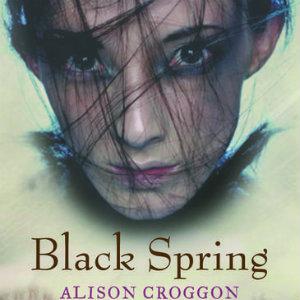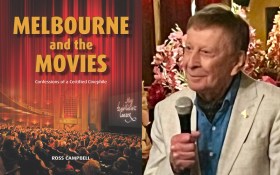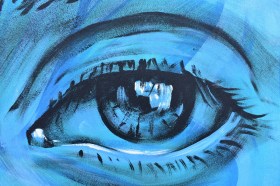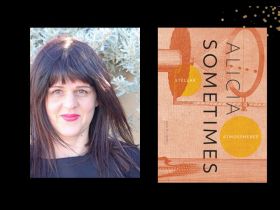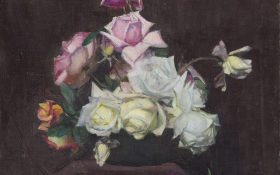As beguiling and entrancing as the violet eyes of Lina, who stares out from the novel’s front cover, Black Spring is largely inspired by Emily Brontë’s gothic classic, Wuthering Heights. A stirring portrayal of the deep and destructive throes of love, the book tells of the extreme bond a young witch, Lina, shares with her childhood companion, Damek, a wayward orphan who is inducted into the household when Lina is still young. Bearing witness to their burgeoning relationship – and all the obstacles threatening it and Lina’s existence – is her best friend Anna.
But it is Hammel who we first hear from. A bumptious poet and writer, Hammel journeys into the deeply oppressive and foreboding Northern Plateau for a respite from the rigours of city life. Similar to Mr Lockwood in Wuthering Heights, Hammel rents a house in the wild, visits his landlord – none other than Damek – and bears witness to a terrifying sequence of events. Fuelled by his desire to unearth more about Damek and bygone times, Hammel asks Anna – who is now his housekeeper – to tell him the story of Lina and Damek.
Although the novel is rooted in the present, it quickly catapults into the past when Anna assumes the dominant role of narrator.
In a departure from nearly every character in the book, Anna is steady, resolute and dependable and so is her narration of the unfolding events. Unflinching and objective, emotional yet fair, Anna is the witness through whom we come to understand the fantastical Northern Plateau and the characters who reside upon it.
Despite the first-person narration throughout, readers are exposed to the thoughts of Hammel, Anna and Lina (the latter in the form of letters) – providing a multitude of perspectives that effectively shed light on different aspects of each character.
Because the reader is never privy to Damek’s thoughts, the amalgamation of various observations, experiences and interpretations paint him as a chequered character with sharply divergent principles; the reader never quite knows what he is thinking, why he does what he does, and what he’ll do next – a plot device largely responsible for much of the suspense and conflict that constitutes the novel.
Through Croggon’s evocative writing, a grim and ominous region far removed from civilisation is deftly brought to live. This 19th century world – where patriarchy is rife, corruption is the norm and the chilling phenomenon of ‘vendetta’ is accepted as a tradition – is so powerfully evoked that it feels instantly familiar.
For fans of gothic fiction, there are many parallels to be drawn between Wuthering Heights and Black Spring. Hammel is akin to Mr Lockwood, Anna is largely modelled after Nelly Dean, and the love Lina and Damek share is reminiscent of the relationship between Catherine and Heathcliff. But in a reimagined fantasy world with different overarching conflicts and deeply embedded traditions inspired by Northern Albania, Black Spring assumes a life of its own.
Although Croggon depicts a society where women are pushed to the periphery of society, by gifting Anna the dominant voice within her story, Croggon defies the very conventions that underpin her fictional world. Unassuming as Anna may be, her narrations are filled with observations about the unjustness of the world she lives in, especially as she experiences a near epiphany about the role of women towards the novel’s end. And Lina – whom the novel is predicated upon – is a fiery, vivacious and wilful character who seethes with self-determination in a region where those very attributes are lauded in men but scorned in women.
Atmospheric throughout, and gripping til the end, with a tension that never abates, Black Spring is a lyrical masterpiece; a beautiful piece of literature that evokes as many emotions as the flawed, incredibly human characters it pays homage to throughout.
Rating: 4.5 stars out of 5
Black Spring
By Alison Croggon
Paperback, 287 pp, RRP 22.95
ISBN: 9781921977480
Walker Books
